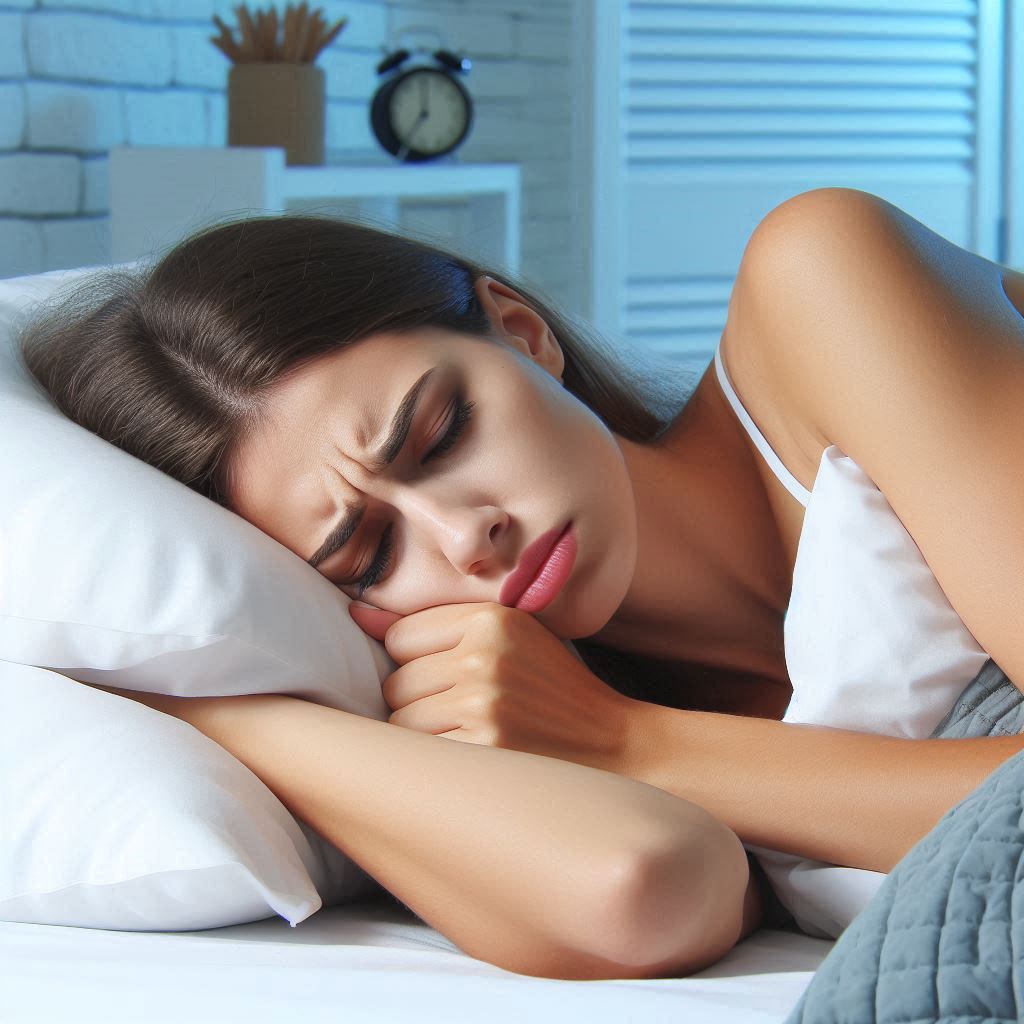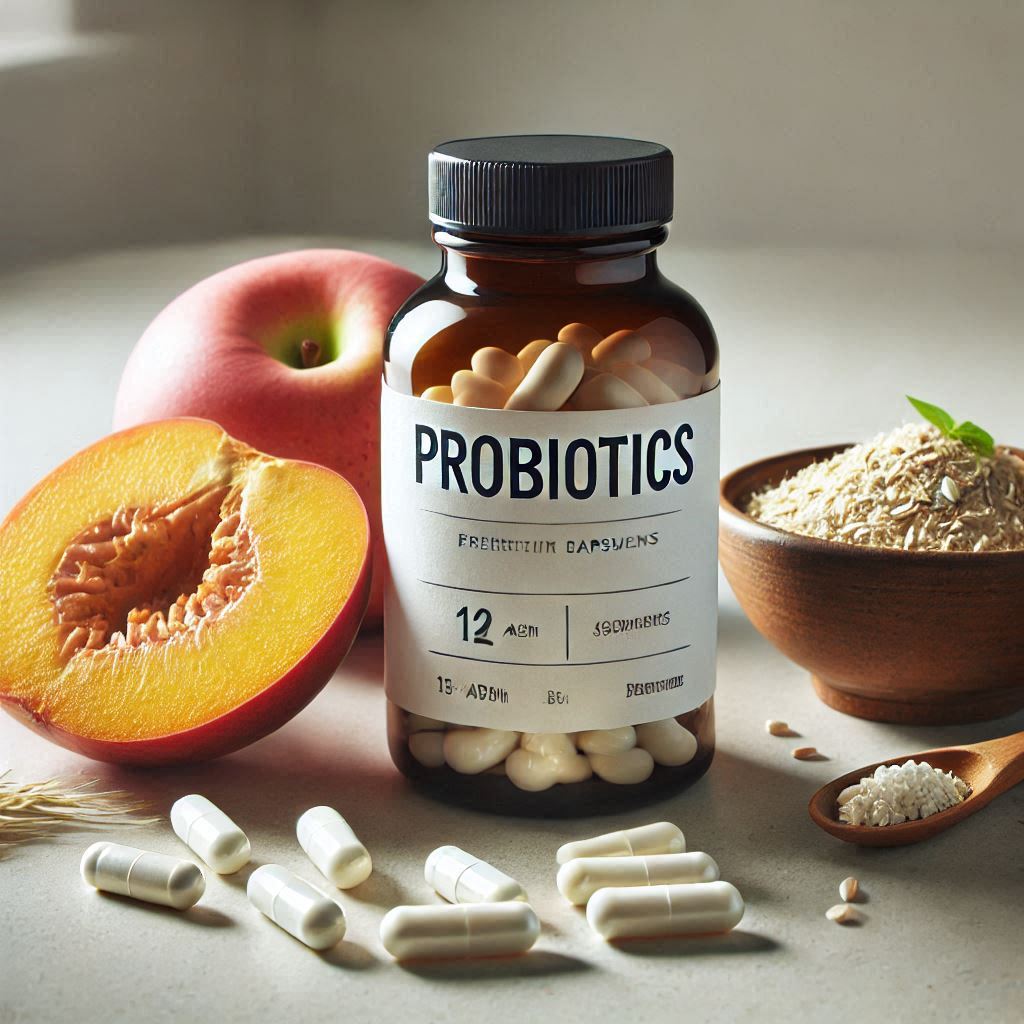Insomnia and the Gut Microbiome

Insomnia is a common problem. In fact, approximately 10% of the adult population has chronic insomnia with another 20% experiencing insomnia on and off on a regular basis (Morin 2022). Standard approaches to insomnia typically include sedative medications, some of which can have concerning side effects, including cognitive impairment. While there are supplements that often get touted for improving sleep, like melatonin, glycine, tryptophan and valerian, these treatments are generally symptomatic approaches. In other words, they don’t correct the underlying cause of the insomnia.
One potential contributing factor to insomnia might seem surprising on first blush: the gut microbiome. Yet research is starting to suggest that the gut microbiome, the bacteria that live within your digestive tract, may be a significant player in how well you sleep.
Insomnia and the Gut Microbiome
The bacteria in the gut affect the brain through the vagus nerve, a nerve which provides a direct connection between the gastrointestinal tract and the brain (Bonaz 2018). And while bacteria communicate with the brain, there is also evidence of the reverse: that the brain can directly influence the microbiota. The vagus nerve can affect inflammation and intestinal permeability, both of which could influence the type and amount of bacteria present.
For people with insomnia, research suggests that they often have changes in their gut microbiota. One study of patients with chronic and acute insomnia found a reduction in microbial diversity, decreased anaerobes (bacteria that live without oxygen), reduced number of bacteria that produce beneficial, anti-inflammatory short chain fatty acids and increased numbers of bacteria that can be opportunistic pathogens (Li 2020). The results suggest that the microbiome is more proinflammatory for individuals with insomnia.
Increased inflammation in the gut has the effect of increasing the activation of the hypothalamic-pituitary-adrenal (HPA) axis (Sudo 2014). In simpler terms, increased gut inflammation causes an increased mental-emotional stress response. This activation can directly impact the ability to relax and fall asleep.
Interventions: Treating the Microbiome to Influence Insomnia
If the microbiome is related to insomnia, the next obvious question is: can we improve insomnia by treating microbiome disturbances? The answer appears to be yes.
Probiotics

The most obvious approach for influencing the gut microbiota is through probiotics. A clinical trial exploring probiotics on mental health and sleep in healthy adults found improvements in anxiety and depression symptoms and sleep quality (Lee 2021). A double-blind trial in patients struggling with chronic insomnia also found improvements in mood and sleep (Ho 2021). Depression levels were lower and the patients woke up less at night from deep sleep. Daytime fatigue also improved.
Supplementation of a probiotic in anxious college students was found to improve mood and sleep (Zhu 2023). For patients struggling with stress-induced insomnia, a probiotic preparation was found to decrease markers of stress while also improving sleep quality (Lan 2023). The study assumed the benefits for sleep were at least partially due to the effects of the probiotic on the HPA axis and a reduction in the stress response. Other trials have also found benefits for sleep quality with probiotic supplementation (Li 2024, Badrfam 2024).
Using Probiotics for Insomnia
In general, different brands of probiotics should not necessarily be seen as interchangeable. Probiotics can contain one or more different types of probiotic bacteria or yeast. Some strains likely have more benefits for insomnia, whereas other strains may have less. Currently, there is not enough evidence to conclude which species of probiotic are best. If interested in using probiotics for sleep, it’s likely worth trying a couple different reputable brands of probiotics that use multiple strains, each for a month or two, to see if any provide noticeable benefits.
For best results, probiotics should also not be used in isolation. They will likely work best as part of a comprehensive approach that includes improved sleep hygiene and other support.
Conclusion
Insomnia is a common problem that may have roots in disturbances in the gastrointestinal microbiome. By treating the microbiome, typically with probiotics, sleep quality is often improved. Combining probiotics with other natural approaches for improving sleep will likely provide the greatest benefits.



